This blog dives into 7 of the most profitable sales channels in 2024, exploring which ones suit what kind of business and how to leverage them effectively.
From established giants like e-commerce marketplaces to innovative options like influencer marketing, we’ll unpack the potential of each channel to help you reach your target audience and boost your bottom line.
So, buckle up and get ready to explore the exciting landscape of sales channels in 2024!
7 Examples of Most Profitable Sales Channels in 2024
1. E-commerce marketplaces
Ecommerce marketplaces like Amazon, Etsy, or eBay can be a powerful sales channel for many businesses, but they particularly shine for those with a few key characteristics.
Suitable for:
- Firstly, businesses with a well-defined product range that can be easily shipped thrive on marketplaces. Since these platforms prioritize fast and convenient delivery, products that are lightweight, non-perishable, and don’t require complex assembly are ideal.
- Secondly, businesses that cater to a broad audience benefit from the vast customer base marketplaces offer. New brands or those targeting niche demographics can leverage the platform’s existing traffic to gain exposure.
- Finally, businesses with strong product photography and clear descriptions are well-suited for marketplaces, where competition can be fierce and capturing attention is crucial.
However, marketplaces aren’t a perfect fit for everyone.
Not suitable for:
Businesses with high-margin luxury goods or those requiring a high level of customer service might find the commission fees and limited control over branding drawbacks.
Example:
Sukkhi, a Mumbai-based imitation jewellery company, leverages Amazon India’s vast user base to reach customers beyond Mumbai, expanding their reach significantly. Amazon’s established reputation reduces Sukkhi’s marketing costs, and Sukkhi’s high-quality product descriptions and photos capture attention in a competitive online space.
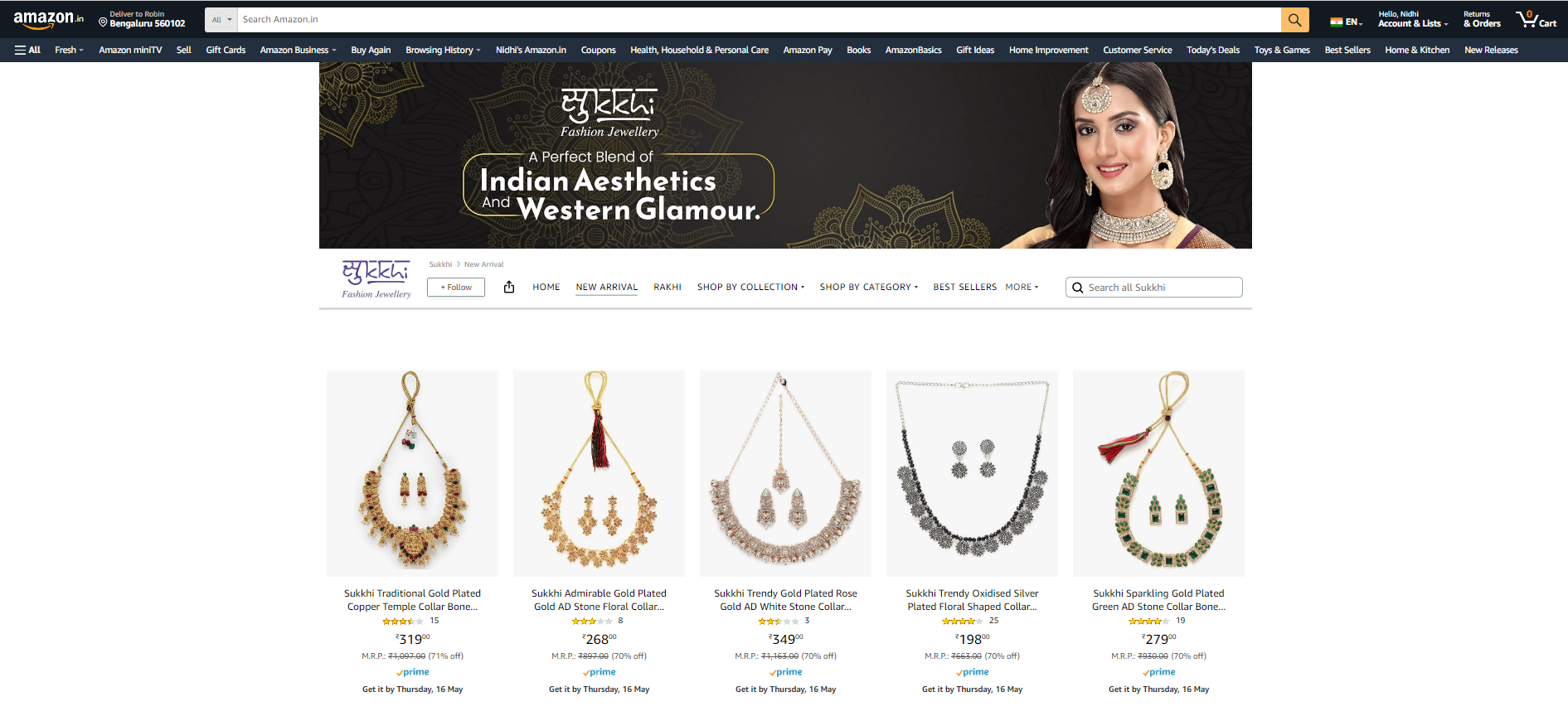
2. Affiliate marketing
Affiliate marketing can be a powerful sales channel for businesses with a unique selling proposition (USP) and products that resonate with specific audiences. It thrives on partnerships with influencers and content creators who can organically recommend products to their established follower base.
Affiliate marketing allows you to tap into an existing audience without the overhead costs of traditional marketing campaigns.
Affiliates can introduce your brand to a new audience segment, increasing brand recognition and potentially driving more organic traffic to your website.
Suitable for:
Brands with specialized products can target affiliates who cater to a specific audience.
Not suitable for:
Affiliate marketing as a sales channel might not be ideal for businesses with common, easily available products or those requiring a high level of customer service pre-sale.
Example:
The Wandering Yogi demonstrates how local brands can leverage affiliate marketing by building partnerships with relevant influencers, offering a unique product, and tracking results to ensure a successful campaign.
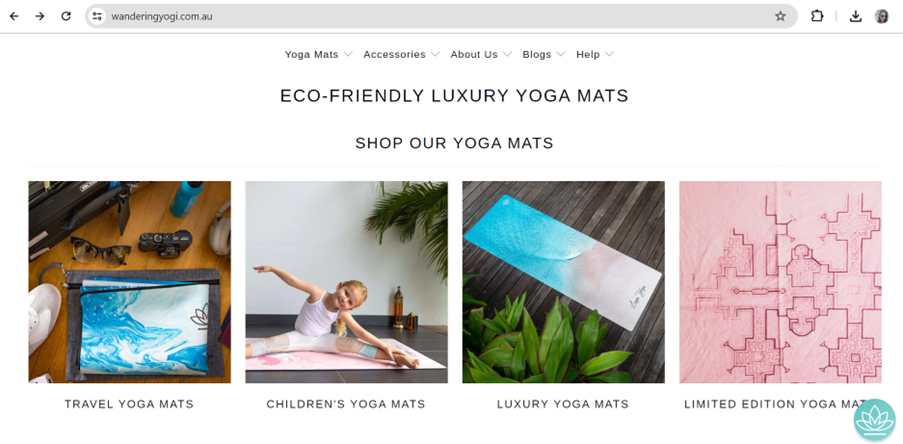
An example of their affiliate link in yogispirit.com
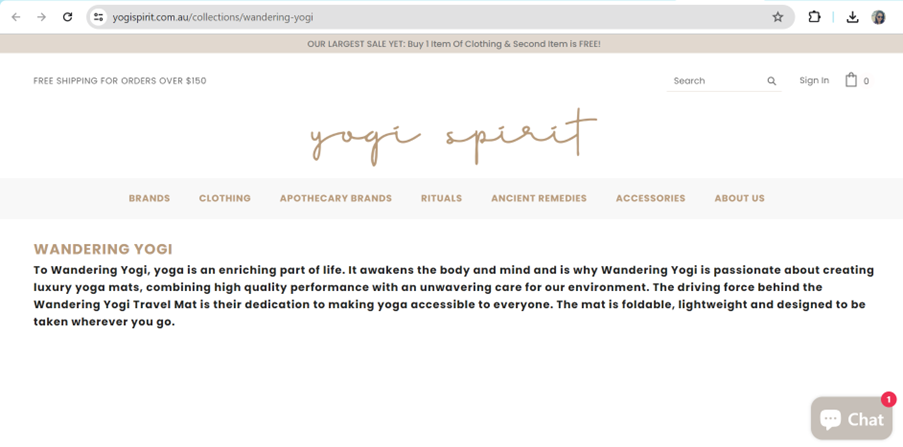
3. Subscription services
In this sales channel example, we’ll discuss subscription services.
Subscription boxes deliver a curated selection of products to customers’ doorsteps at regular intervals, offering convenience and eliminating the need for frequent repurchases. Think of a local coffee roaster offering a monthly subscription for freshly roasted beans.
Suitable for:
The subscription service model thrives for businesses offering products or services with consistent customer demand and a high potential for recurring revenue.
Not suitable for:
This model might not be ideal for one-time purchases or products with a sporadic use cycle.
Example:
Pampers, a leading baby diaper brand offers Subscribe and Save option to encourage repeat purchases.
Brands can offer this service on marketplaces or even on their websites.
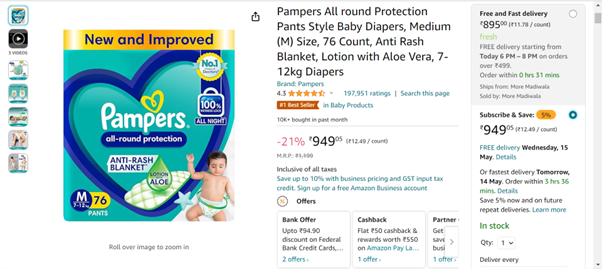
4. WhatsApp Business
WhatsApp fosters direct, two-way communication between businesses and customers. Businesses can answer questions, provide product recommendations, and address concerns in real-time, fostering trust and building relationships.
Suitable for:
WhatsApp Business can be a powerful sales channel for businesses that thrive on personalized communication and customer interaction.
Not suitable for:
WhatsApp Business might not be ideal for businesses requiring complex transactions or those dealing with a high volume of inquiries that a single chat representative might struggle to manage.
Example:
Here’s an example of how local businesses can publish their catalog on WhatsApp and start receiving orders from their contacts.
Embedded payment links within WhatsApp makes it further easier for businesses to collect payments from customers.
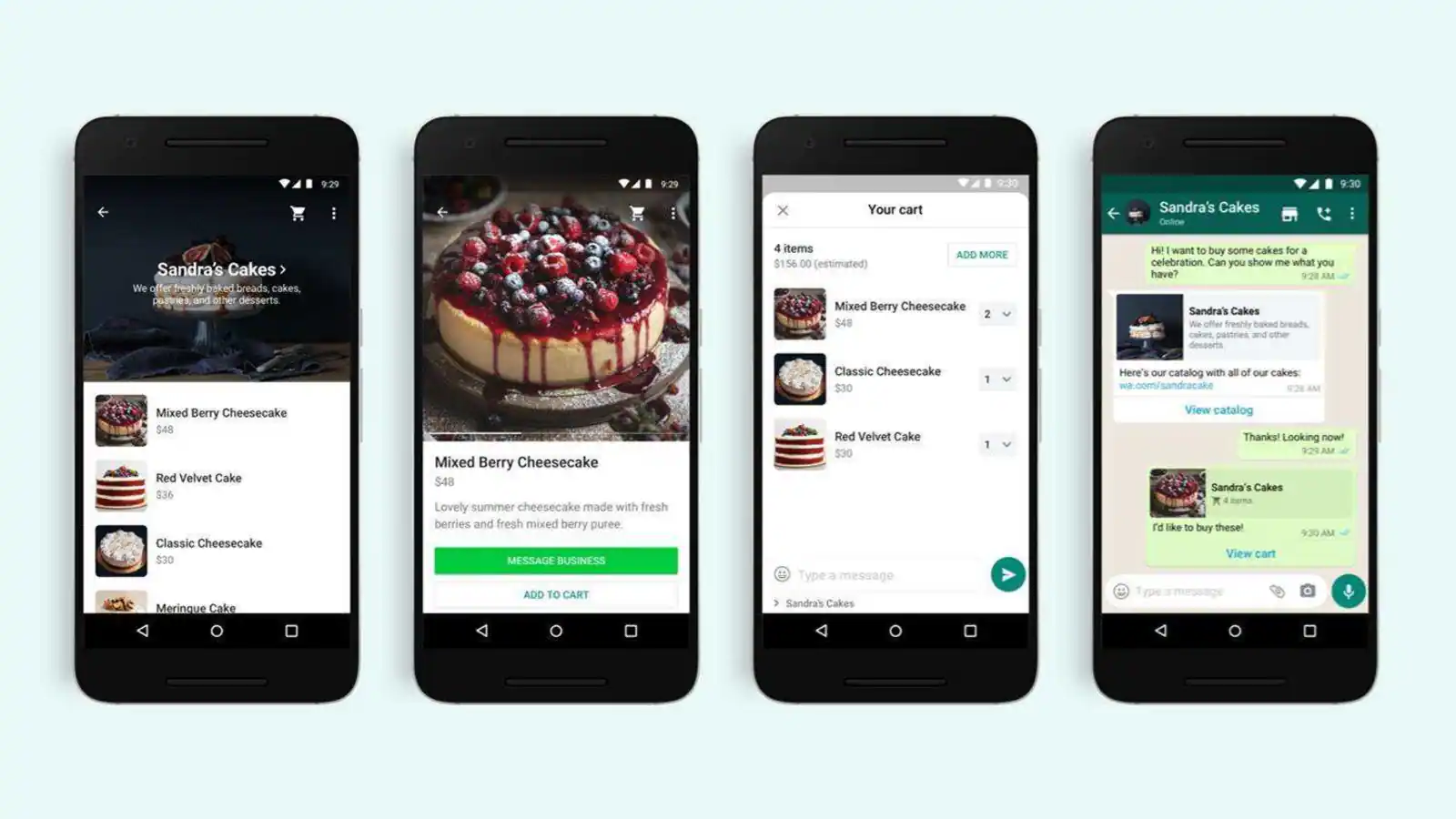
5. Influencer marketing
Partnering with influencers allows you to tap into their established follower base, potentially reaching a new audience segment you might not have accessed through traditional marketing channels.
Influencers who genuinely connect with their audience can create a sense of trust and authenticity for your brand through positive product reviews or recommendations.
You can reach out to influencers and collaborate with the ones that align with your brand values and target audience, ensuring your message resonates with the right people.
Suitable for:
Influencer marketing can be a dynamic sales channel for businesses with visually appealing products and a target audience that actively engages with social media influencers.
Not suitable for:
Businesses with complex products or those targeting a very broad audience might find it challenging to identify the right influencers for their campaigns.
Example:
Bombay Sweet Shop partners with micro-influencers (those with a smaller but highly engaged following) who specialize in food and lifestyle content. These influencers can create more personal and relatable reviews.
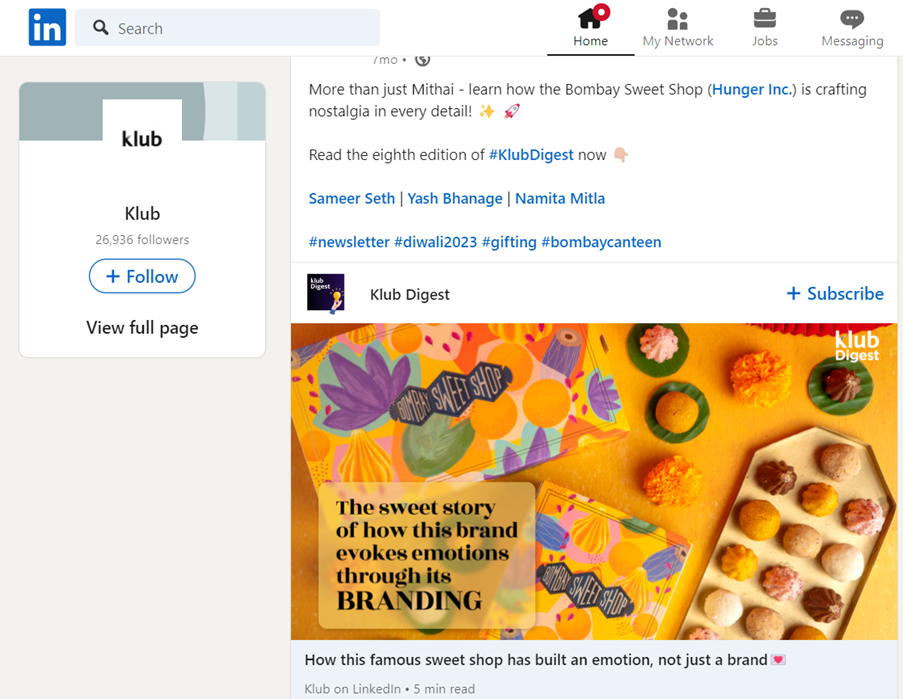
6. Direct emails
Direct email establishes a one-on-one communication channel with customers, allowing businesses to nurture leads, offer exclusive promotions, and provide valuable content that builds brand loyalty.
Companies can segment their email lists based on demographics, purchase history, or other criteria, ensuring their promotions and updates are relevant to specific customer segments.
Suitable for:
Direct email marketing can be a powerful and cost-effective sales channel for a wide range of businesses, but it thrives for those that can build strong relationships with their customers and nurture leads.
Not suitable for:
Businesses with a generic product offering or those struggling to build a permission-based email list might find this channel less effective.
Example:
Here’s an example of Swiggy utilizing direct email as a sales channel.

7. Google Ads
Whenever we want to buy a product or service, we look up in Google. Google Ads help showcase your products or services for a certain amount, whenever they type in related queries.
Google Ads provides detailed analytics, allowing businesses to track clicks, conversions, and campaign performance. This data helps them optimize their campaigns and maximize their ROI.
Suitable for:
Google Ads is suitable for almost all kind of businesses. Even local businesses can use it to appear at the top of search results for relevant keywords, significantly increasing their online visibility within their market.
Not suitable for:
Businesses with a complex sales funnel or those requiring a high level of customer service pre-sale might find Google Ads challenging to manage effectively.
Example:
Here’s an example of HomeTraingle.com utilizing Google Ads for driving sales.
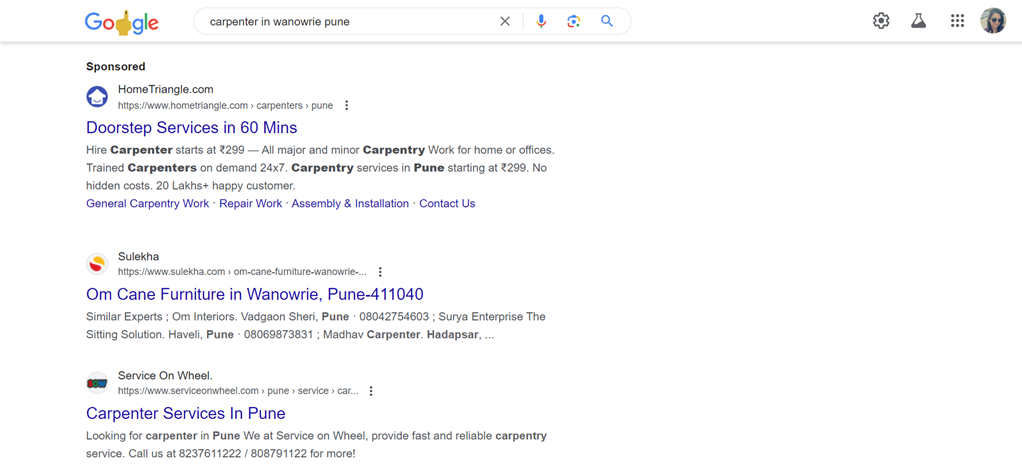
A Note on Managing All your Sales Channels Effectively
When you start using various sales channels, you may get inquiries from each of these channels and will probably have to juggle between various platforms.
Not responding to inquiries would lead to missed sales opportunities and wasted spend on these channels.
A simple solution to this is a CRM software.
- Using a CRM, you can consolidate customer information, sales interactions, and lead data from all your sales channels into one central location.
- Respond to inquiries from the CRM system, automate email sequences, and track communication history for a seamless customer experience.
- Automate repetitive tasks like sending follow-up emails, assigning leads to sales reps based on specific criteria, or triggering notifications for abandoned carts.
- You can even monitor key metrics for each sales channel. Track conversion rates, identify top-performing channels, and analyze customer behavior to optimize your overall sales strategy.
Now that we know that a CRM software can streamline your channel sales strategy, here’s one you might want to evaluate.
That’s LeadSquared.
It allows you manage your complete sales pipeline, manage processes, and automate workflows in a single platform.
To know more about the platform capabilities, contact us.









